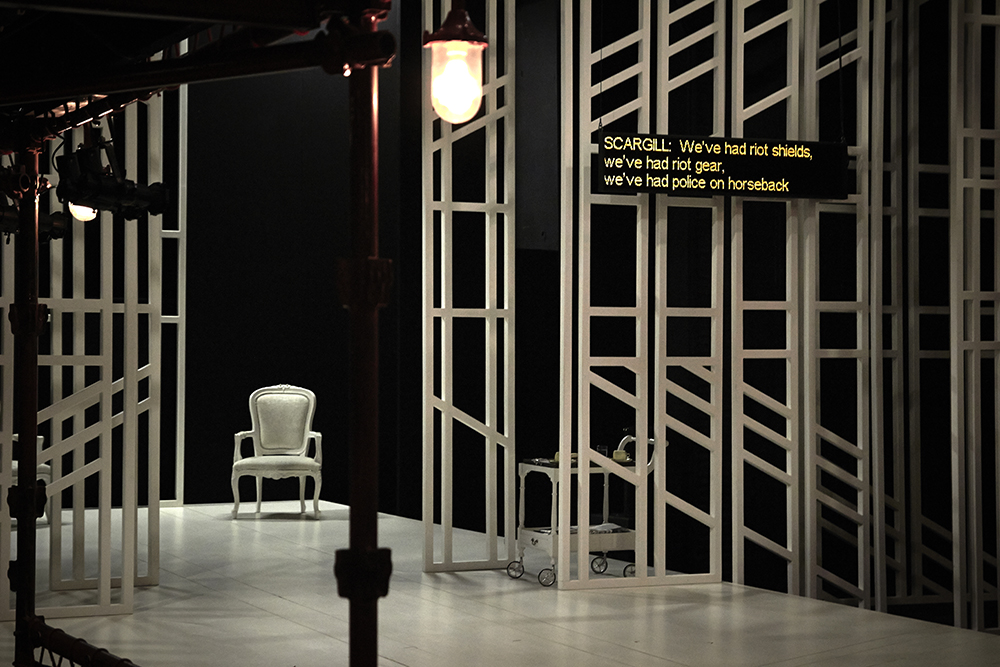The State of Theatre Access report, which is released today, details what access information is being made available on theatres’ websites across the UK.
Of the 629 venues audited only 117 (19%) listed captioned performances on their websites, falling from 139 venues in 2017 (21%). This year 161 venues (26%) failed to share any access information whatsoever.
Nina Thomas, caption user and Stagetext board member, said: “What’s really disappointing about this report is that we know there are more theatres out there putting on captioned performances, but they’re falling at the first hurdle by not making that information available.
“If theatres don’t have this information online it makes it really difficult to find out which shows are accessible and what venues we can even go to, meaning we can miss out on productions and events that other people wouldn’t even think twice about their ability to attend.”
The Euan’s Guide Access Survey 2018 shows that 53% of access users surveyed said that they’d avoid venues that don’t share their access information, as they assume that it is inaccessible.
The State of Theatre Access Report, which is the second of its kind to focus on theatre, also shows that in comparison to 2017 there are between 3% and 5% fewer theatres providing information on captioning, audio description, and British Sign Language (BSL), while there has been an increase of 10% more theatres showing information on relaxed performances.
Overall the 629 theatres audited showed the following information:
- 20% provide audio description for performances
- 21% provide BSL for performances
- 19% provide captioning for performances
- 4% provide dementia-friendly performances
- 20% provide relaxed performances.
This report only takes into account what access is listed on a theatre’s website, not what access is being provided within the venue. In 2018 our website (www.stagetext.org) listed captioned events for over 140 different venues, showing that there are more venues in the UK putting on captioned performances but still not listing them on their own websites.
Stagetext, VocalEyes, Leeds Playhouse, and Touretteshero, worked with 21 volunteer researchers to visit hundreds of theatre websites and catalogue what access information was being listed online.
Download Full Report (557KB) Download Large Print Version (102KB)
Quotes
“We are really pleased that this crucial survey identifies the continued discrepancies between what is on offer for non-disabled audiences and what is made accessible. In the 40 years that Graeae has been championing the right to theatre for all, we have seen a lot of change, but there is still a lot of work to do. The finding that fewer than 30% of UK theatres list one or more type of access service for upcoming productions tells us just how far there is to go. Together with our friends at Stagetext and VocalEyes, and other allies across the sector, we will continue to work to change the ethos of our industry to create a genuinely accessible, inclusive theatre landscape. We hope that the findings in this report can act as a catalyst to move things forward.”
Graeae Theatre Company
“No building can honestly call itself a ‘theatre’ unless it truly represents and includes everyone. Too many of us fall far too short of this mark due to outdated ideas of performance and the unspoken rules and rituals. It is time for us all to get radical and uncompromising. The tools we need to transform already exist – what we need now more than anything is a fundamental change of mindset. Rather than asking ourselves ‘How much effort will it take for us for improve access?’ we need to ask ‘Why are we wasting so much money and time doing everything we can to exclude certain people?’. Starting from a completely different place will lead us very naturally to a much more welcoming and vibrant future.”
Tarek Iskander, Artistic Director & CEO, Battersea Arts Centre
“It is non-negotiable that our theatres and public spaces should be accessible to all and it is staggering in the 21st century there is still the need to raise awareness of this and strive for equality. Aside from this being a fundamental human right, it makes good business sense for our theatres and public spaces to be fully accessible; with spending power of £250bn, disabled people are consumers with incredible power in their pockets. At the moment it feels we are merely scratching the surface with the options we offer disabled people and in order to remain current, theatre will need to continue to find more innovative, imaginative and visionary ways to integrate accessible elements into performances, which offer exciting artistic opportunities for creatives and performers as well as equality for audiences.”
Nikolai Foster, Artistic Director, Curve




